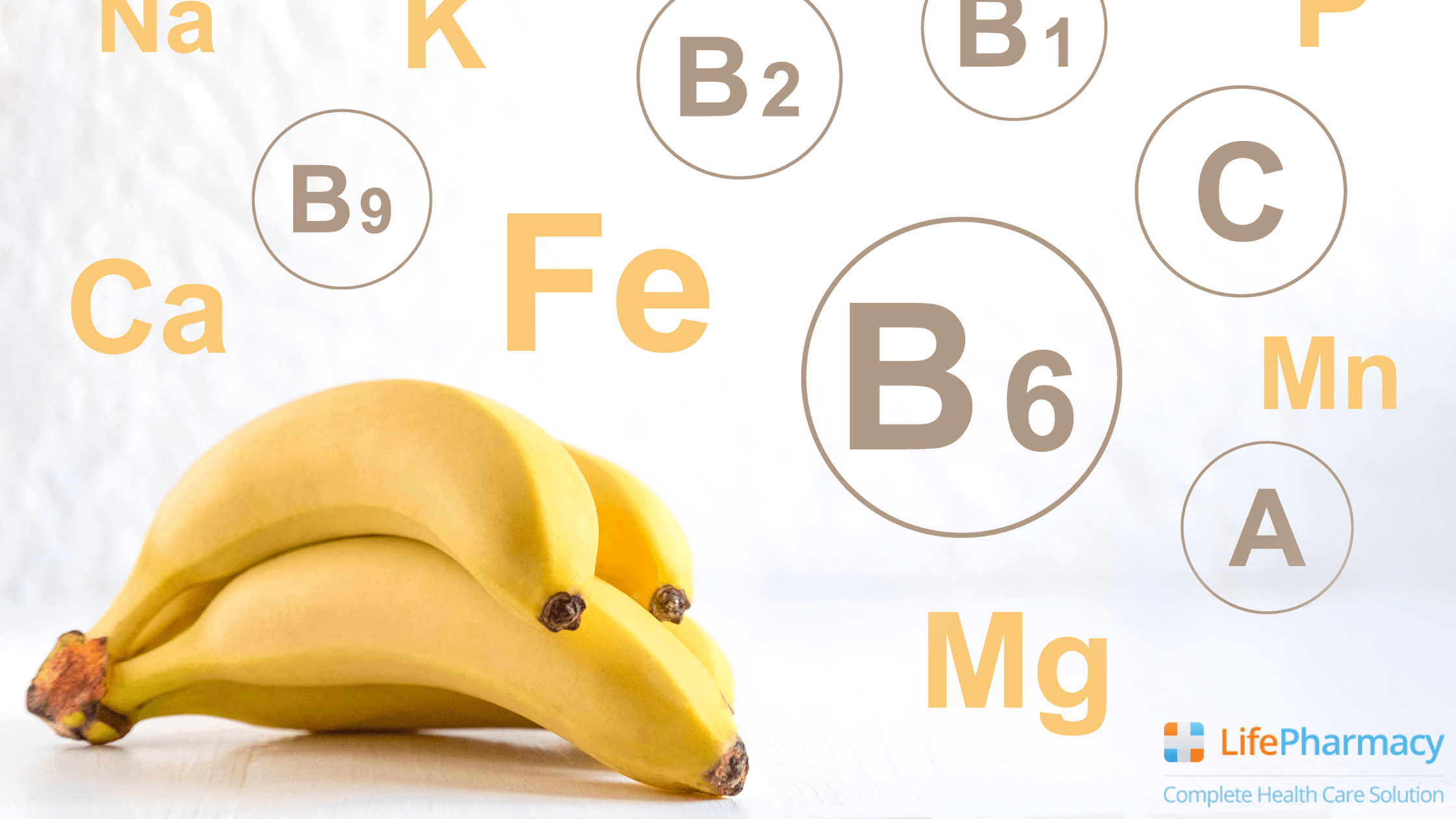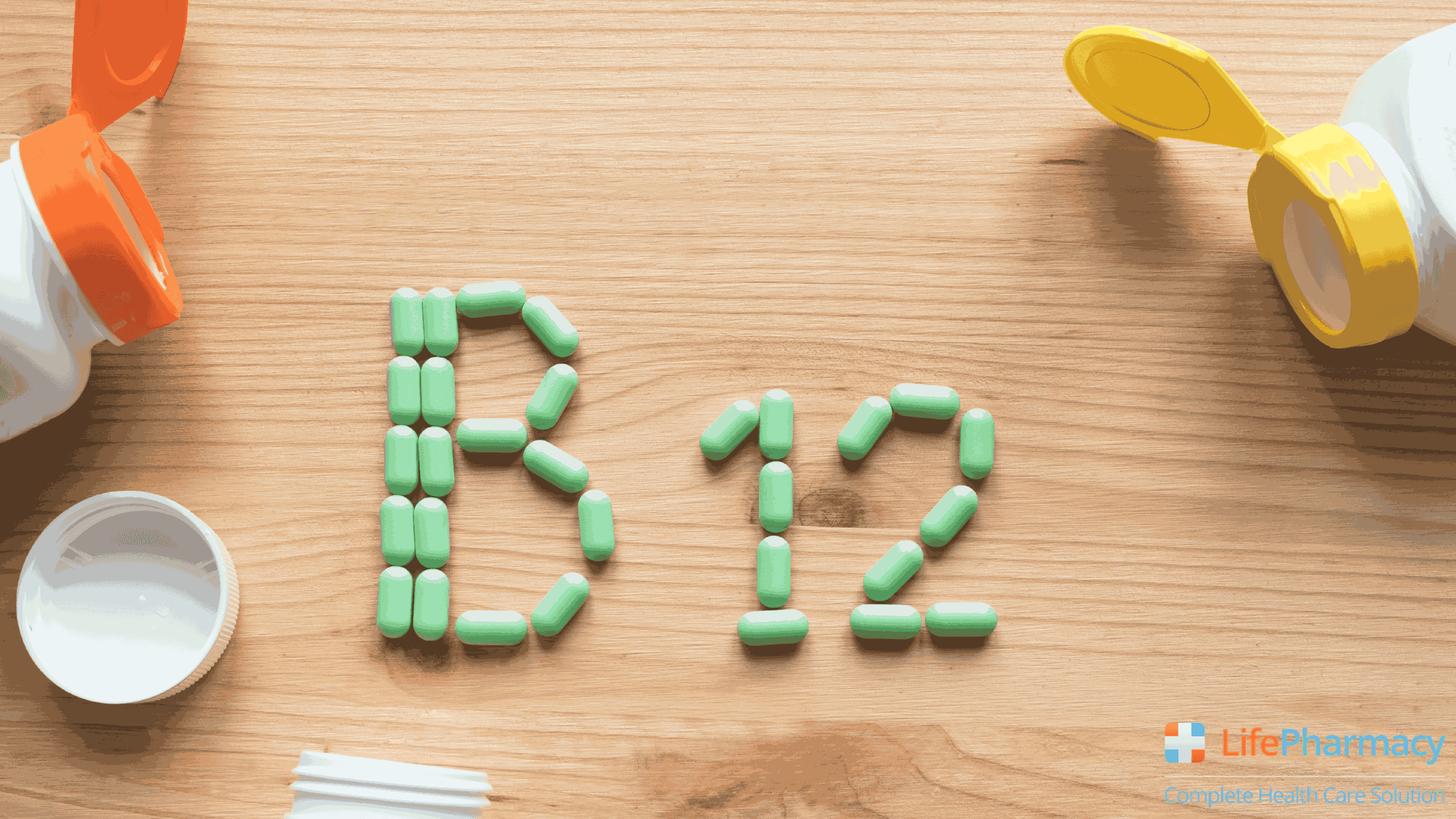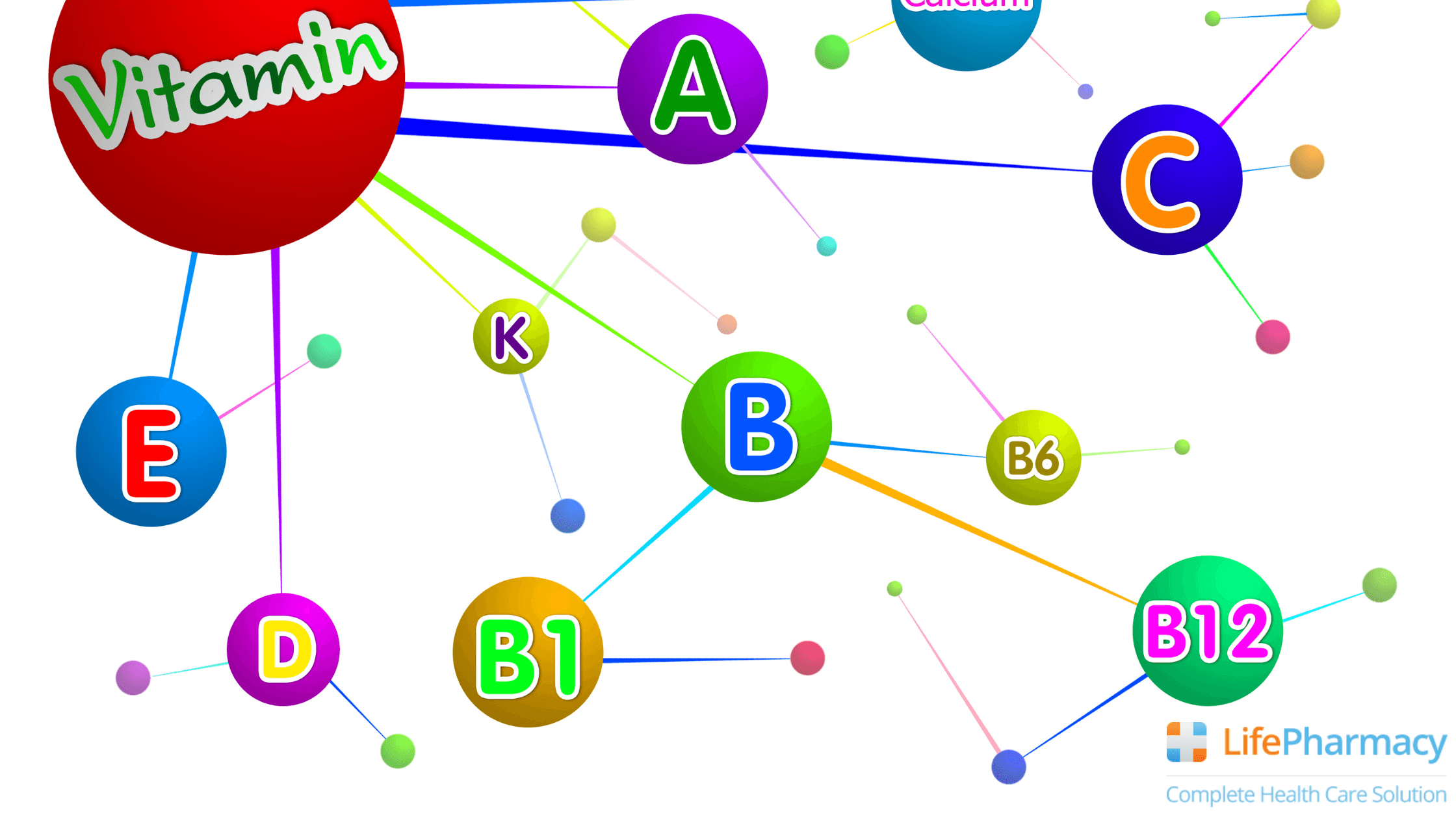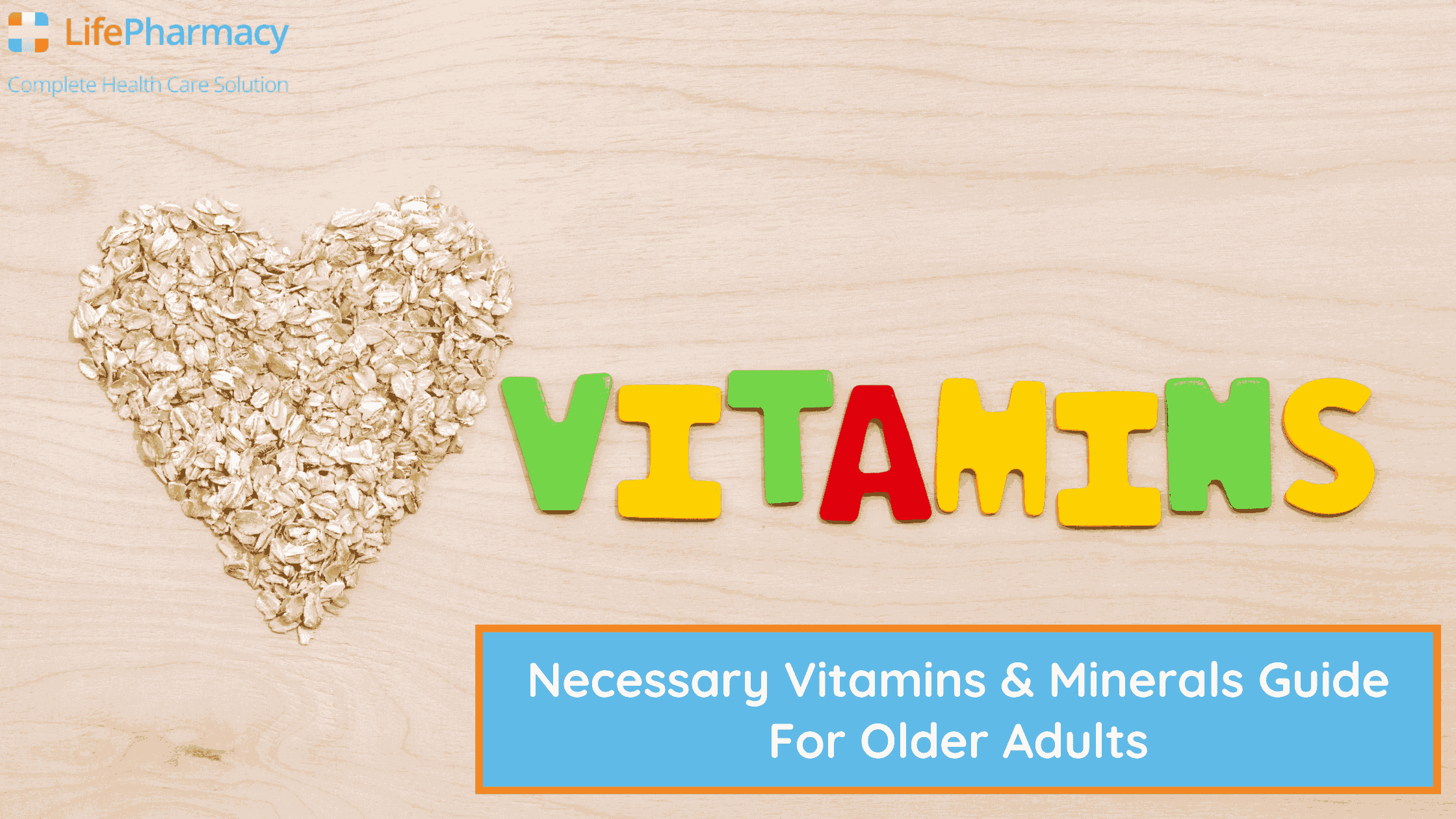Whether you are young or aging, eating right and staying fit is important. Our bodies' nutritional needs alter as we age, making it crucial to get the right amount of nutrients each day for various bodily functions and good health.
Consuming the right amounts of vitamins and minerals helps reduce the risk of developing several health disorders such as diabetes, high blood pressure, heart disease, high cholesterol, bone loss, and osteoporosis.
Although the calorie requirement as you get older begins to decline, it is essential that every calorie consumed is nutrition-packed. Several other problems persist with age, such as the body becoming less efficient at absorbing the nutrients from food, the decline in the ability to taste food, loss of appetite, and some foods becoming difficult to chew or digest. These may lead to a short supply of nutrients in your body as you age.
To overcome this problem, UK online pharmacy gives you a complete list of all the vitamins and nutrients your body needs as you age and the best way to get enough of them.
Read Our Necessary Vitamins & Minerals Guide For Older Adults:

-
Calcium and Vitamin D
Calcium is an important nutrient that helps maintain the health of your bones and teeth. With age, a diet that provides sufficient calcium is necessary to reduce the risk of osteoporosis (bone loss), fractures, colon cancer, hypertension, and diabetes. If you are already on blood pressure medication, online pharmacy UK can provide them anytime at your doorstep.
Calcium is abundantly found in dairy products; three servings of low-fat or fat-free dairy products daily can help older individuals fulfill their calcium needs. Since it is essential to keep your weight in check as you age, foods low in saturated fat help reduce your risk of heart disease and control weight gain. Besides this, dancing, golf, brisk walking, or weight-bearing exercises can help maintain strong bones and control your weight as you age.
Canned fish with soft bones, dark-green leafy vegetables like kale, spinach, canned sardines, dried beans, and salmon with bones are other rich sources of dietary calcium.
Much like calcium, vitamin D helps maintain bone health as it aids in the absorption of calcium from the food you eat. Bone health is especially important for older citizens as osteoporosis and weakening bones can make falls far more dangerous.
Vitamin D also enables muscle movement and neurotransmission between the brain and other body parts, and your immune system ward off bacteria and viruses that attack your body. According to research, it may also help reduce the risk of diabetes, heart disease, and inflammation.
Sunlight is the richest source of Vitamin D, thus making it imperative for the older age groups to spend sufficient time outdoors to get direct sunlight exposure that will help fulfill their daily requirements of vitamin D. Other Vitamin D-rich foods are fortified milk and milk products, egg yolks, fortified cereals, fatty fish, and fish liver oils.
Since the body does not store a large amount of Vitamin D, people who remain indoors or live in cold regions might have to take additional Vitamin D supplements to compensate for the lack of this nutrient. Suppose you have decided to take a calcium supplement or A to Z multivitamins,. In that case, it is advisable to choose one that contains vitamin D
-
Vitamin B12

Vitamin B12 is assigned with the task of keeping the body’s nerves and blood cells healthy. It helps make DNA, which carries the genetic information in all cells. A proper amount of this vitamin is quintessential to preventing megaloblastic anemia, a red blood cell condition that leads to weakness and fatigue.
Aging(especially after 50) does make it harder for the body to absorb Vitamin B 12 naturally present in food due to inadequate levels of hydrochloric acid in the stomach, but being a strict vegan can add to the trouble as the vitamin naturally is limited to animal-based foods. Foods fortified with Vitamin B12 are eggs, fish, fortified breakfast cereals, nutritional yeasts, meat, especially beef liver, poultry, and dairy products.
-
Vitamin B6
This vitamin supports the formation of red blood cells. It also ensures healthy connections between the brain and nerve cells. UK pharmacy advises using Vitamin B6 supplements to treat arthritis, diabetes, and memory loss. Vitamin B6 is found in non-citrus fruits, beef liver, chicken breasts, fish, and veggies such as potatoes and other starchy vegetables.
-
Vitamin B9
Memory loss is a common problem in people over 60. Vitamin B9, also known as folate or folic acid, may slow or prevent memory loss in older individuals. It also helps convert carbohydrates into energy which is imperative for aging individuals. Consuming fruits like oranges and vegetables like broccoli, spinach, beans, peas, and Brussels sprouts can help derive this essential vitamin for your body.
-
Potassium
Among the minerals required by the body, the mineral potassium plays a vital role in regulating several physical processes in your body. It also aids in regulating your blood pressure by working with your kidneys to eliminate the excess sodium from your body through your urine.
It can also aid in reducing the risk of developing kidney stones. In old age, this mineral helps muscles flex and contract properly and promotes a healthy heart by relaxing the blood vessel walls. In fact, 80% of the muscle cells found in your body are dominated by potassium. By incorporating bananas, broccoli, mushrooms, avocados, strawberries, yogurt, raisins, prunes, dates, sweet potato, and white potato in your daily diet, you can obtain sufficient quantities of this mineral.
-
Magnesium
This mineral facilitates approx 600 reactions in your body, making it a prime requirement for every cell to function smoothly. It helps to convert food into energy, regulates the neurotransmitters that send messages across your brain and nervous system, and helps your muscles contract and relax.

If magnesium levels in your body lower, it can increase the risk of depression, a common problem with older age groups due to loneliness that may stem from several reasons. So the chemist online would emphasize incorporating mood-boosting foods high in magnesium, such as pumpkin seeds, dark chocolate, black beans, almonds and cashews, Halibut, and mackerel. This mineral is also found in foods rich in dietary fiber, such as green leafy vegetables, whole grains, legumes, breakfast cereals, and other fortified foods. Dietary fiber helps stay regular and reduce your risk for Type 2 diabetes.
Conclusion
Besides the above-mentioned vitamins and minerals, Vitamin C, Vitamin K, Iron, Zinc, Sodium, etc., play a vital role in maintaining the health of older individuals. A lack of essential vitamins or minerals can aggravate health conditions for older adults. Thus, a balanced diet rich in nutrients plays an important role.
Although it is possible to get all the required nutrients from food, UK online pharmacies suggest that you must consult your doctor if you feel that you may be low in any essential vitamin or mineral. You must refrain from taking over-the-counter vitamins and supplements as they may contain many other unnecessary ingredients or may even negatively interact with prescription medications you might be consuming. Another reason to consult your doctor is these medications must be taken at an appropriate time to maximize absorption and avoid side effects.
We are aware of your needs and difficulties and are ready to provide you with online delivery 24/7. Contact Life Pharmacy at the earliest!






